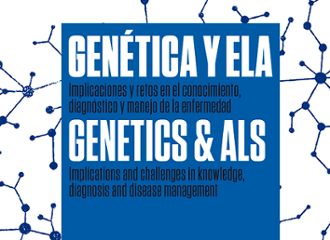Events
Start of main content
Neural communication, neurotransmitters and aging
Life and Matter Sciences International Symposium December 2 - 3, 2003 Madrid
Two main mechanisms are involved in neuronal communication and signal transmission.
Organized by:
Fundación Ramón Areces
Coordinator/s:
Francisco MoraDepartamento de Fisiología, Facultad de Medicina.
Universidad Complutense. Madrid.
Kjell FuxeDepartment Neuroscience, Karolinska Institutet.
Estocolmo. Suecia.
- Description
- Programme
Description
First, synaptic transmission, classical, in which one or several neurotransmitters are released from the presynaptic terminals and interact with specific receptors located in the postsynaptic terminals. Second, the so called volume transmission in which one or more neurotransmitters, after being released from neurons, diffuse long distance throughout the extracellular space to act on receptors located on other different neurons.
Both, synaptic and volume transmission interact in specific neuronal circuits which codify for specific functions of the brain. Recently, the functional interaction neuron-astrocyte has been involved in volume transmission and in particular as a source of the extracellular concentration of the neurotransmitter glutamate. The present symposium will focus on the interaction between these two types of neurotransmission in the context of the normal process of aging of the brain.
Programme
Tuesday, 2
9:45
Opening
José María Segovia de Arana
Consejo Científico. Fundación Ramón Areces
Introduction
10:15
Interaction of neurotransmitters, neuron-glia communication and aging: Relevance for in vivo studies
Francisco Mora
Coordinador del Simposio.
First session
Chairman:
Luigi Agnati
Dept. Biomedical Science. Università di Modena. Modena. Italia.
11:00
Dynamics of volume transmission in the brain. Focus on monoamine communication
Kjell Fuxe
Coordinador del Simposio.
11:45
Break
12:00
Concepts and experimental evidence for the migration of volume transmission signals in the brain: possible role of pressure waves and temperature gradients
Luigi Agnati.
12:45
Factors governing diffusing molecular signals in extracellular space
Charles Nicholson
Dept. Physiology and Neuroscience.
New York University.
Nueva York. EE UU.
13:30
General discussion
Second session
Chairman:
Philip Haydon
Dept. Neuroscience. Pennsylvania University. Philadelphia. EE UU.
16:00
Astrocytes: Listening and talking to the synapse
Philip Haydon.
16:45
New signalling pathways in the Nervous system: Communication between astrocytes and neurons
Alfonso Araque
Instituto Cajal. CISC. Madrid.
17:30
Break
17:45
Neuron-glia communication: Mechanisms of metabolic signalling coupled to synaptic activity
Pierre J. Magistretti
Institut de Physiologie. Lausanne. Suiza.
18:30
General discussion
Wednesday, 3
First session
Chairman:
Kjell Fuxe
9:45
Glia and volume transmission during physiological and pathological states
Eva Syková
Dept. Neuroscience. Charles University.
Praga. República Checa.
10:30
Brain steroidogenesis is neuroprotective: Implications for brain aging
Luis M. García-Segura
Instituto Cajal. CSIC. Madrid.
11:15
Break
11:30
Dopamine-glutamate interaction in the prefrontal cortex-nucleus accumbens circuit: Relevance to brain aging
Alberto del Arco
Departamento de Fisiología, Facultad de Medicina.
Universidad Complutense. Madrid.
12:15
Age-related changes in glutamate regulation in the rat striatum
Greg A. Gerhardt
Dept. Neurology. Kentucky University. Kentucky. EE UU.
13:00
General discussion
Second session
Chairman:
Laurent Descarries.
Dept. Pathologie et Biologie Cellularie.
Université de Montréal.
Montreal. Canadá.
16:00
Neural plasticity in adult and aged brain
Manuel Nieto-Sampedro
Instituto Cajal. CSIC. Madrid.
16:45
Inflammatory process as a determinant factor for degenerative dopamine neurons
Alberto Machado
Departamento de Bioquímica, Bromatología, Toxicología y Medicina Legal.
Universidad de Sevilla.
17:30
Break
17:45
The acetylcholine innervation of cerebral cortex: Implications in the pathophysiology of Alzheimer's disease
Laurent Descarries.
18:30
General discussion
19:00
Concluding Remarks
Kjell Fuxe
-
 Activities related
Activities related
-
 Projects related
Projects related
-
 News related
News related
-
 Publications related
Publications related
 Activities related
Activities related
-
26
Jun
2024
Conferencias La aventura de la ciencia Madrid, Miércoles 26 de junio de 2024, 19:00 horas
-
13
Feb
2025
17th edition. Cycle of conferences and debates in science Digital Twins: Technological Advances and Application Opportunities Madrid, Thursday, 13 February 2025, 17:30 hours
-
18
Feb
2025
Session New Therapies for the Inflammation Treatment Madrid, Feb 18th, 2025, Tuesday. 4PM
 Projects related
Projects related
- Development and Application of saRNAs for the Treatment of Rare Monogenic Diseases 2024 Senior Researcher : María Luisa Cayuela Fuentes
- CHANNELOSOME RESCUING PEPTIDES IN THE TREATMENT OF ARRHYTHMIAS IN INHERITABLE HEART DISEASES 2024 Senior Researcher : José Jalife Research Centre or Institution : Centro Nacional de Investigaciones Cardiovasculares (CNIC). Madrid
- Mechanisms for sustaining mitochondrial genome integrity and function during hematopoiesis. 2024 Senior Researcher : Ana Victoria Lechuga Vieco Research Centre or Institution : Fundació Clínic per a la Recerca Biomèdica. Hospital Clínic. Barcelona
 News related
News related
 Publications related
Publications related


End of main content



